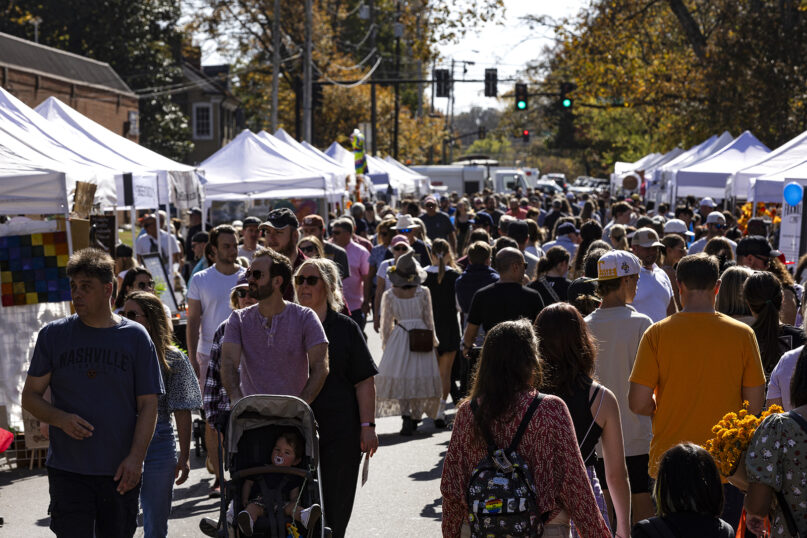(RNS) — Williamson County is Tennessee’s wealthiest community and has the best schools in the state, some of the biggest churches, a host of Christian nonprofits and a whole bunch of country music stars who call it home.
It’s not the place you expect to find neo-Nazis and white supremacists.
Yet there they were last month, showing up at a forum to back then-mayoral candidate Gabrielle Hanson, a local Realtor and alderman in Franklin, Tennessee, a bucolic suburb 20 miles south of Nashville best known for its Civil War-era mansions, historical downtown and annual Pumpkinfest and “Dickens of a Christmas” festivals.
On election day (Oct. 24), posters from the Patriot Front — which claims real Americans are only those “born to this nation of our European race” — appeared in downtown Franklin while the Williamson Herald, a local newspaper, reported its building had been vandalized and its reporters threatened by neo-Nazis.
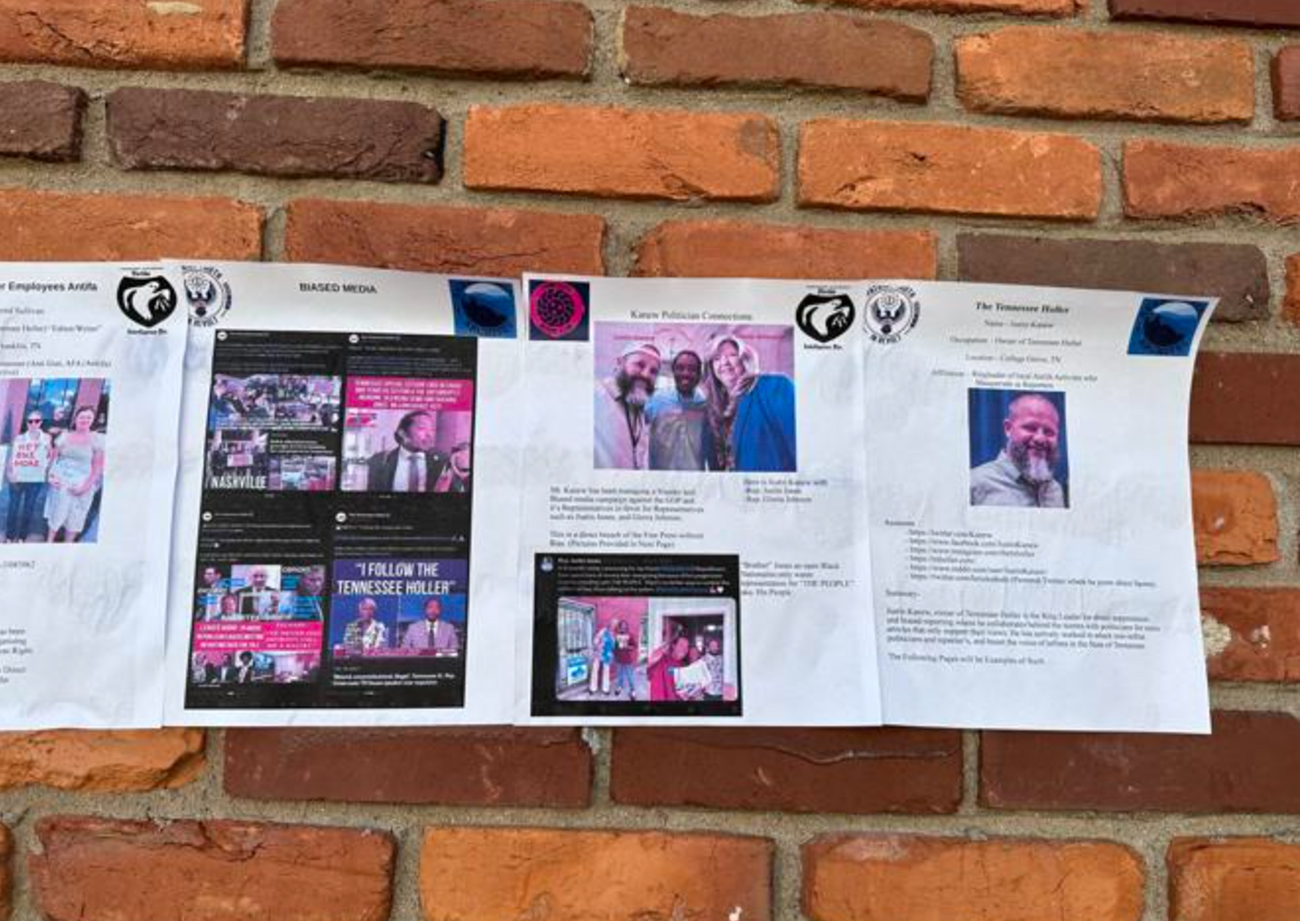
Printouts were pasted to the exterior of the Williamson Herald offices in Franklin, Tenn., in late October 2023. (Photo by Derby Jones/Williamson Herald)
While Hanson — whom some supporters, including a self-described prophet, described as God’s anointed candidate — denied supporting racism of any kind, she also refused to denounce the white supremacists who showed up to back her.
Hanson, who opposed the city’s Pride Fest and has warned that Franklin has become “woke,” told critics that any division due to her campaign was the fault of city leaders.
“This is the old adage of you reap what you sow,” she said.
RELATED: In Branson, God and country serve as red, white and blue comfort food
Hanson lost her mayoral election to incumbent Ken Moore by a margin of 12,822 to 3,322, according to The Tennessean newspaper, due in large part to a huge jump in voter turnout.
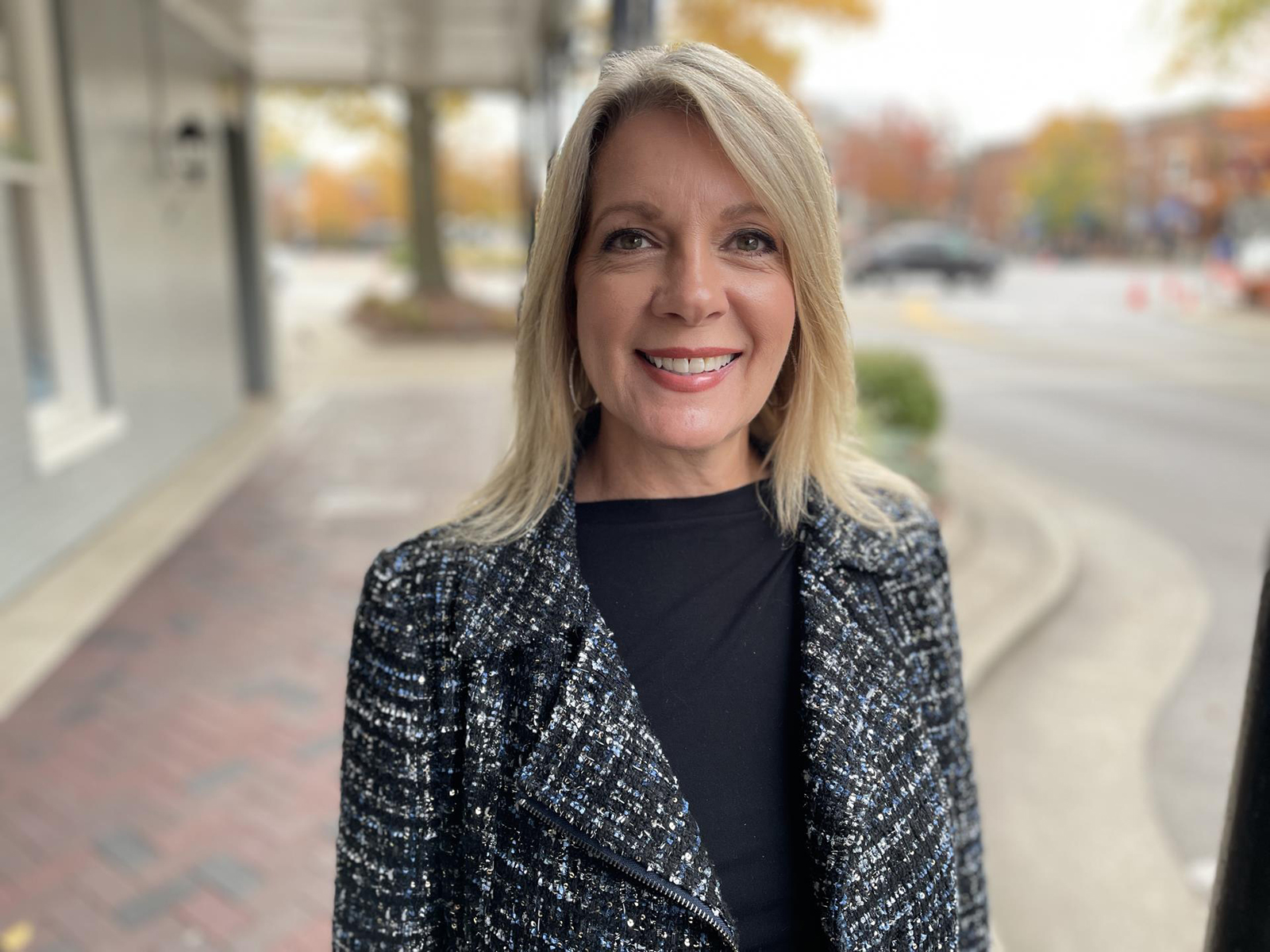
Gabrielle Hanson. (Photo via FranklinTn.gov)
Despite her loss, the presence of white supremacists in Franklin has shaken longtime residents like writer Holly McCall, editor-in-chief of the Tennessee Lookout and a former chair of the Williamson County Democratic Party.
“I feel like I need to put a tinfoil hat on because when I start talking to people who aren’t from here,” said McCall, “it sounds absolutely crazy.”
McCall is concerned about the rise of Christian nationalism in Williamson County and worries that Hanson’s run for mayor, even though it failed, will provide a road map for Christian nationalist candidates — especially in well-off communities like Franklin.
“We are the tip of the spear because we look like Pleasantville,” she said.
The kind of Christian nationalism found in these affluent Nashville suburbs is driven not by the so-called deplorables — white, disenfranchised, working-class Americans who are often seen as the core of the “Make America Great Again,” or MAGA, base but by the kind of well-to-do suburban Christians found in Williamson County who have money and influence and something to lose in a changing America.
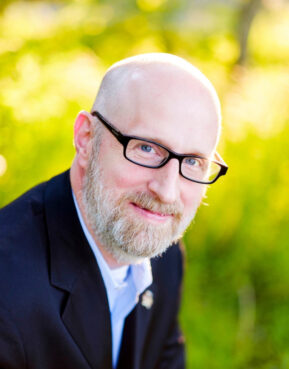
David French. (Photo courtesy of John Locke Foundation)
“This is not the downtrodden,” said author and attorney David French, who lives in Franklin. “This is not like the voice of the forgotten coal miner in West Virginia. This is some of the most privileged people in the whole United States of America, acting like they’re on the brink of unimaginable persecution.”
Hanson — whose campaign website describes her as an American, a patriot, a follower of Christ and a mom — is the latest of a series of Christian leaders warning that Williamson County’s way of life is under threat.
The suburban Nashville county was a hotbed of the Tea Party movement, which was followed by the anti-Shariah movement, support for Donald Trump’s MAGA campaign, and fights over Common Core and critical race theory in local schools. During the COVID-19 pandemic, anti-vaccine and anti-shutdown protesters threatened doctors and other health professionals during a school board meeting, with some shouting, “We know where you live.”
Leaders of those movements were once seen as fringe, said French, who described the old guard as more of the Chamber of Commerce variety of Republicans.
French, a former lawyer with the American Center for Law and Justice and Alliance Defending Freedom, a pair of Christian legal powerhouses, said now those once at the edge of the room are running the place.
French has a hard time understanding the fear that drives people to feel their way of life in Williamson County is in danger. The county — and the broader Nashville region — is filled with what he called “prosperous, professional Christians” who work with publishing houses, Christian music labels and a host of ministries.
It’s hard to go anywhere without meeting someone in the God business.
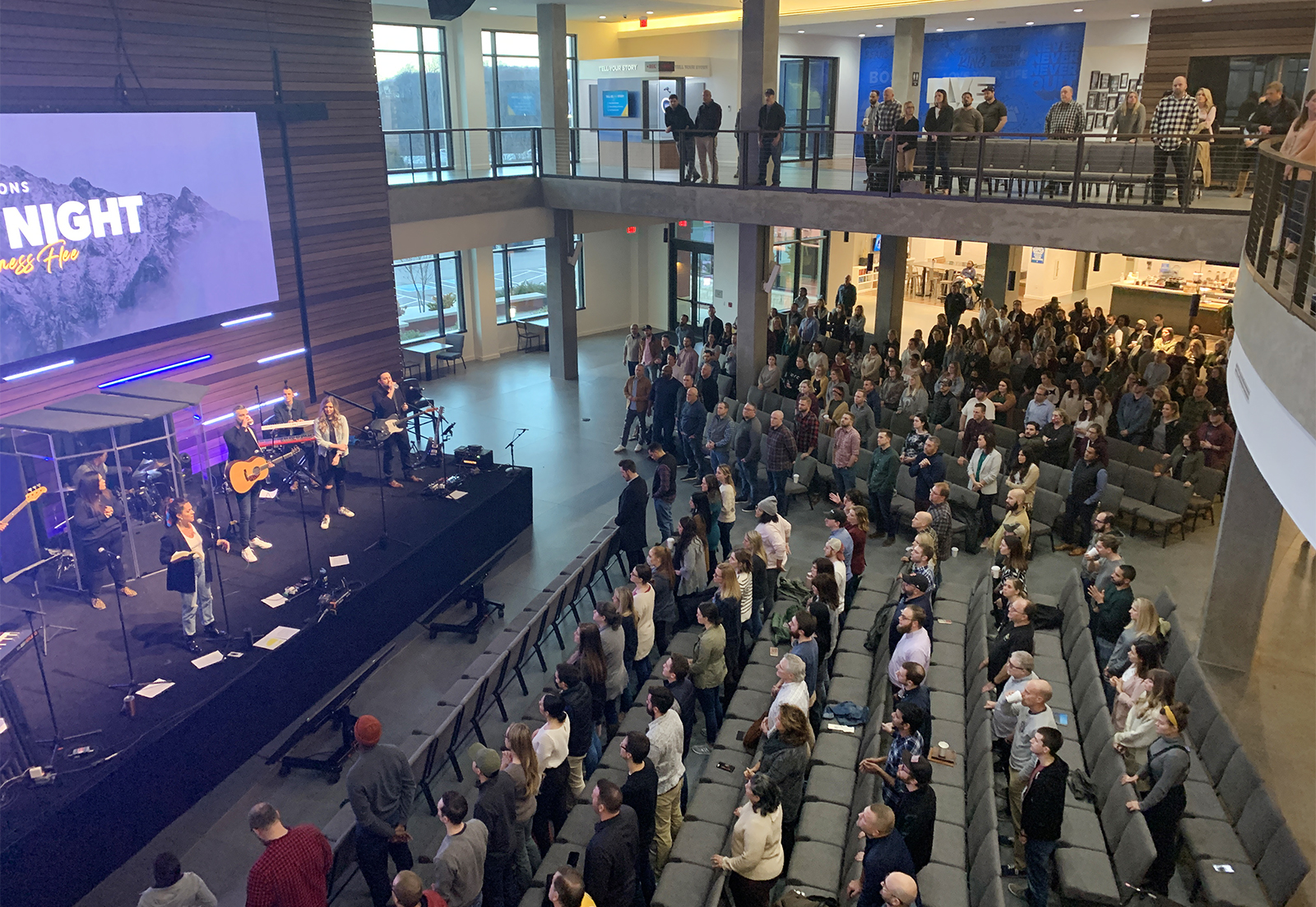
People attend a worship service titled “Watch the Darkness Flee,” Jan. 14, 2021, at Ramsey Solutions headquarters in Franklin, Tenn. (RNS photo/Bob Smietana)
Nashville and its surrounding suburbs, also referred to as Middle Tennessee, is headquarters to Thomas Nelson and Lifeway, two of the nation’s largest Christian publishers. The Educational Media Foundation, the nonprofit that runs K-LOVE Christian radio stations, moved to Franklin in 2021. Ramsey Solutions, the company owned by Christian finance guru Dave Ramsey, is one of Williamson County’s largest employers. Capitol Christian Music is based in suburban Brentwood, as is the Tennessee Baptist Mission Board. A number of United Methodist national agencies are based in Nashville, along with the Executive Committee of the Southern Baptist Convention.
Williamson County has some of the state’s largest and most influential churches, including the Church of the City; Brentwood Baptist; Grace Chapel, whose members include Gov. Bill Lee; and Christ Presbyterian Church, where U.S. Sen. Marsha Blackburn is a member.
About two-thirds of the county’s residents identify as white Christians — including a third who are evangelicals, according to data from the Public Religion Research Institute. By contrast, fewer than half of Americans (41%) identify as white Christians.
Williamson is also home to influential Christian activists such as attorney and radio host Jay Sekulow, founder of the ACLJ, who may be best known in recent years for defending Donald Trump during his 2020 impeachment. Long known for defending religious liberty, the ACLJ has turned more partisan in recent years, especially in its fundraising, warning Christians that their way of life is under attack.
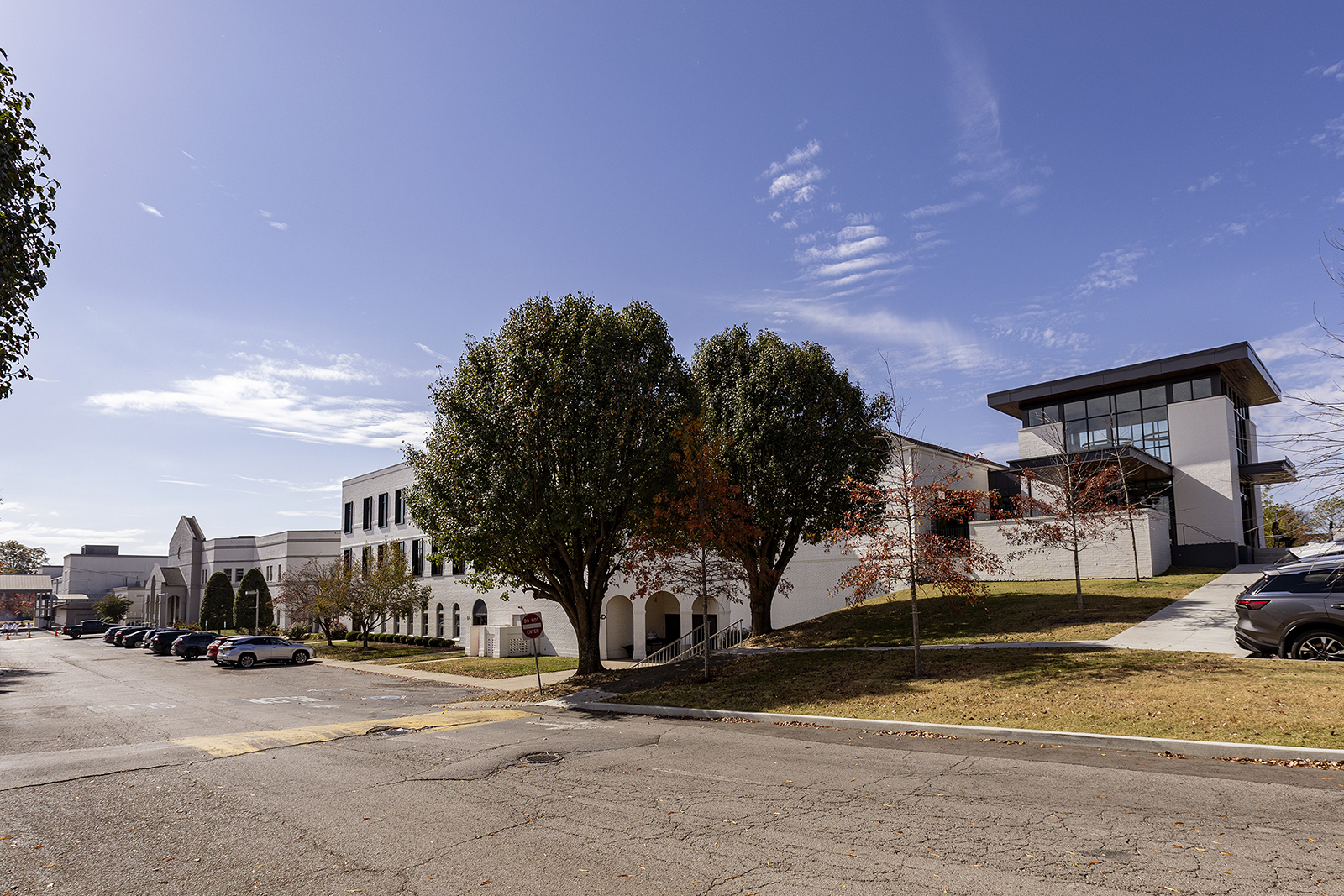
The Church of the City campus in Franklin, Tenn., Oct. 28, 2023. (RNS photo/Wade Payne)
“There’s a massive storm brewing, and our deadline is looming,” read a recent fundraising appeal signed by Sekulow. “I’m gravely concerned that Christians aren’t ready. President Biden is emboldening anti-Christian forces to strip away your religious liberty.”
Proclaiming Justice to the Nations, a pro-Israel evangelical group, is also based in Williamson County. Along with promoting ties to Israel, the group’s founder, Laurie Cardoza Moore, was a vocal opponent of a mosque in nearby Murfreesboro — about 30 miles to the east of Franklin — and a critic of what she saw as “anti-Semitic, anti-American, anti-Judeo-Christian” books in public schools. Her activism led to Moore being appointed to a statewide textbook review board.
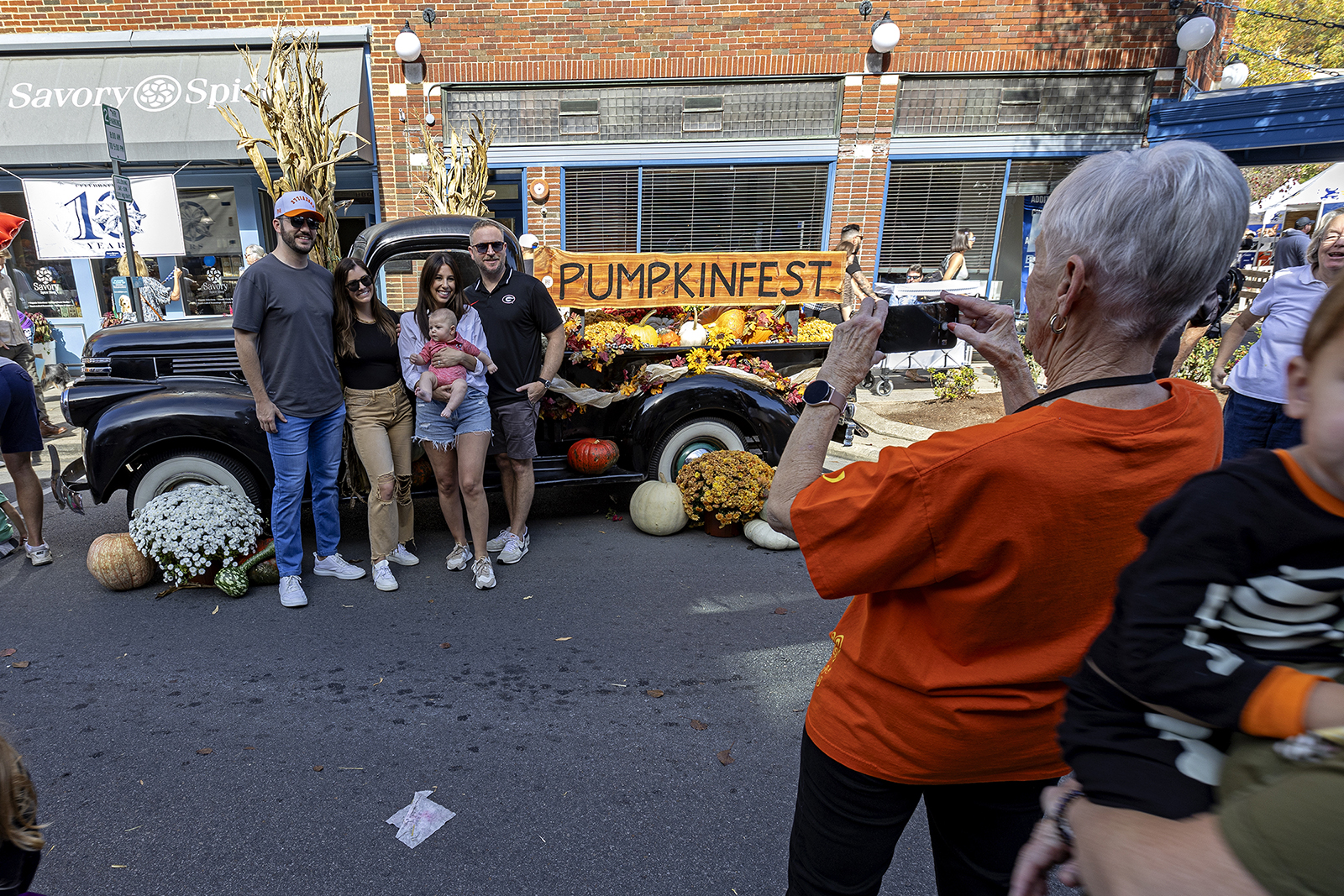
People take photos next to an antique truck during Pumpkinfest, Saturday, Oct. 28, 2023, in Franklin, TN. (RNS photo/Wade Payne)
There’s so much overlap between God, big business, entertainment and politics that the area’s culture has earned a few nicknames. David Dark, an author and professor at Belmont University, one of the area’s three major Christian colleges, called that nexus the “Prayer Trade.”
Phil Vischer, the co-creator of “VeggieTales” and a co-host of the popular “Holy Post” podcast, calls it “Christian Nashville-ism” — a Southern and distinctly evangelical version of Christian nationalism.
RELATED: Mike Johnson embodies evangelicals’ embattlement strategy. It may be backfiring.
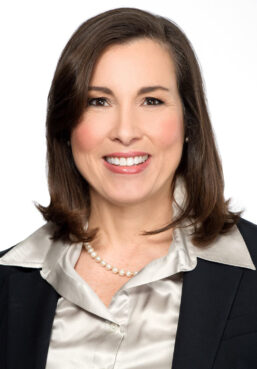
Holly McCall. (Photo by Shannon Fontaine)
McCall, a lifelong Tennessean, said Williamson County has always been conservative — and religion has always played an outsized role — but it’s more intense now. She pointed to the COVID-19 pandemic and the rise of Trump — as well as an influx of evangelical Christian groups and conservative influencers such as Ben Shapiro and the Daily Wire to Nashville.
These newcomers, including Hanson, left other states seeking refuge in Tennessee and claiming Nashville and its suburbs belong to “white Christian patriots” like them, said McCall.
And, while much of their God and country rhetoric sounds like what is sometimes called “Cracker Barrel Christianity,” what sets Christian nationalism apart from more aspirational forms of religious patriotism is its focus on outside enemies.
Those who are not Christian or not sufficiently Christian are accused of undermining the true nature of America. Such thinking also promotes what scholars call “participatory anti-democracy” — mobilizing people to make sure their views win no matter what. This paints fellow citizens who disagree with them as the enemy.
“I don’t think people who follow politics at the national level appreciate sufficiently how pervasive the bullying and name-calling is at the local level,” French said.
A similar movement of outsiders helped turn Colorado Springs into a stronghold of the religious right in the heyday of groups like Focus on the Family, said Will Schultz, a religious historian at the University of Chicago Divinity School.
In the 1980s and 1990s, Focus and other evangelical nonprofits moved to Colorado Springs, creating a “Mecca for Evangelical Christians,” as NPR put it, and turning Colorado into a battleground over gay rights and other social issues. Those newcomers, often from more liberal places such as California or the East Coast, teamed up with conservative activists already in the region to oppose LGBT rights.
“All of a sudden, in their backyard, they see the very forces they’d come to Colorado trying to escape,” said Schultz.
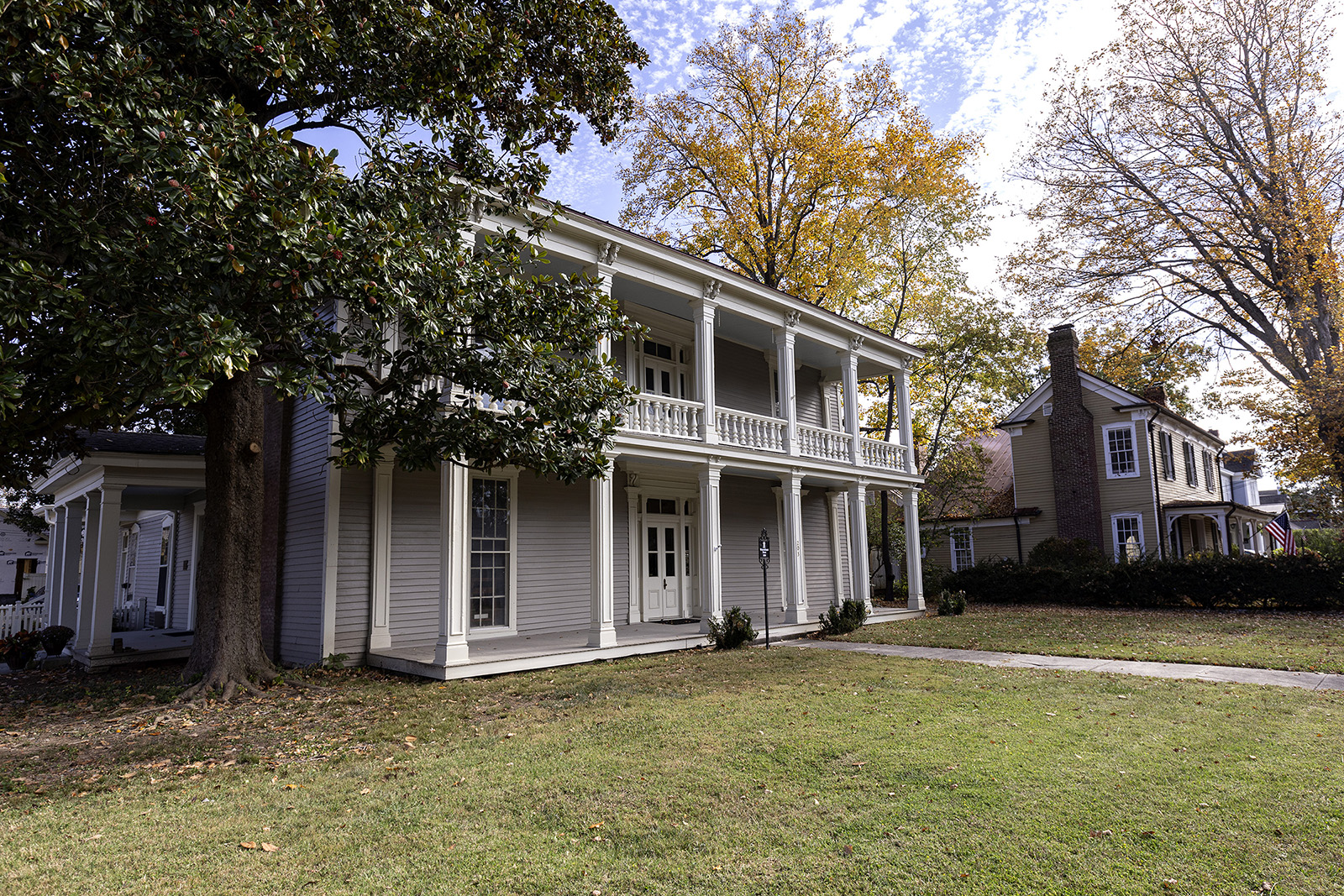
Several historic homes in Franklin, Tenn., Oct. 28, 2023. (RNS photo/Wade Payne)
Darren Dochuk, a historian at Notre Dame and author of “From Bible Belt to Sunbelt: Plain-Folk Religion, Grassroots Politics, and the Rise of Evangelical Conservatism,” said suburban communities often have the feel of a small town, including a sense of autonomy that is protective of conservative social values and suspicious of the federal government.
That kind of conservatism, he said, is often fueled by fear-driven political rhetoric that motivates people to put their money and connections to work to protect what they see as theirs.
“They are fiercely driven and outspoken and they have institutions including churches around which they can rally and coordinate,” Dochuk said. Add in assets like social media, and it becomes easier for well-off suburban Christians to turn their anxiety into populist action.
He said the influence of the Tea Party — which launched a series of anti-government protests during Barack Obama’s presidency, often in well-off communities like Franklin — has been overlooked in the Trump era. Dochuk said scholars and journalists often overlooked the role that religion played in the Tea Party.
“What we see today in Trump America can be explained in no small part through the success of that movement,” he said. “And that movement was again driven not by the deplorables, but by those with something to lose.”
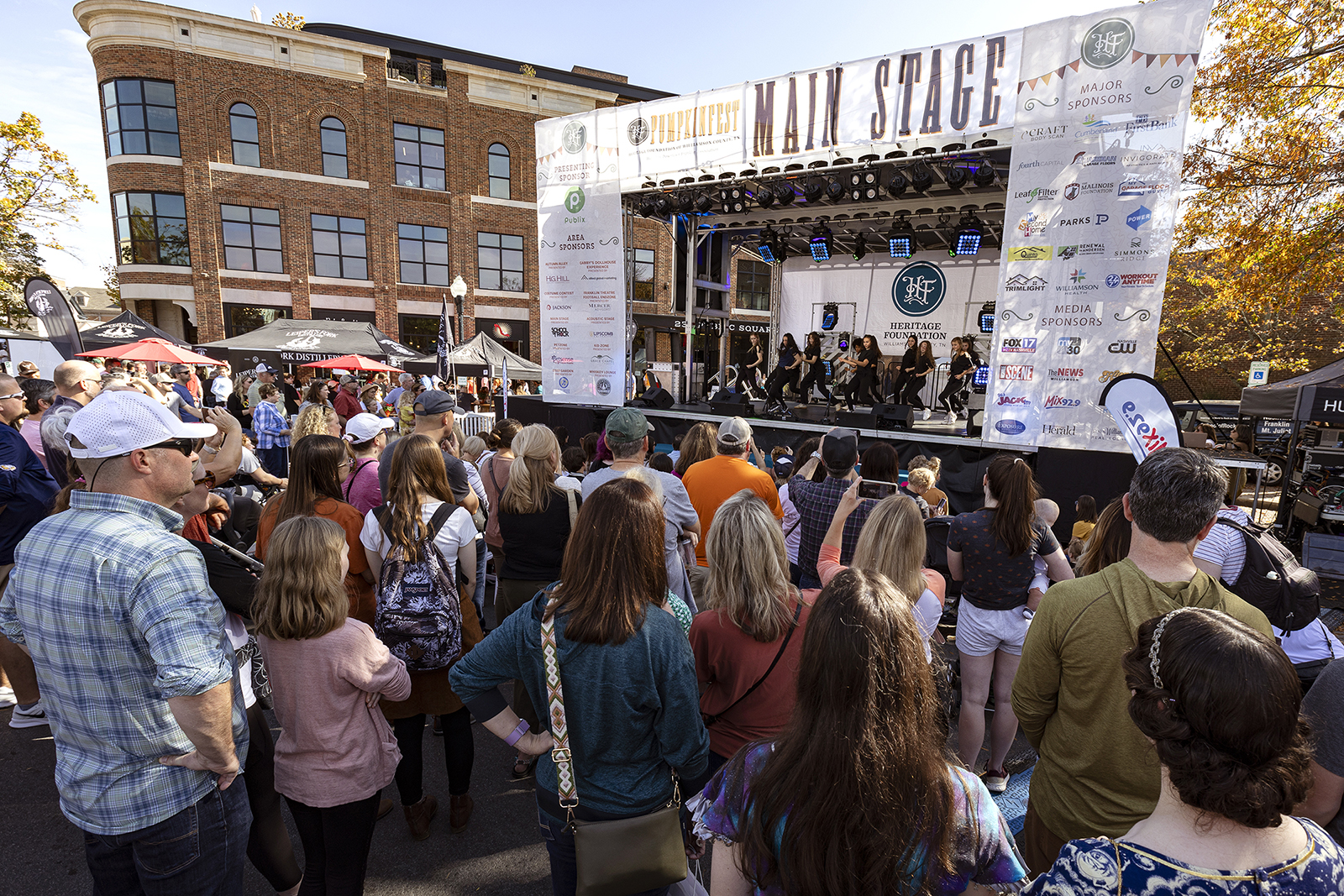
Attendees watch a dance troupe perform during the annual Pumpkinfest in Franklin, Tenn., Oct. 28, 2023. (RNS photo/Wade Payne)
Calvin University history professor Kristin Kobes Du Mez, who studies conservative evangelicals, said the power of the moms in places like Williamson County should not be underestimated. These affluent suburbs are filled with talented and well-connected conservative women who see political activity — especially when it comes to issues that affect their children — as an outgrowth of their faith.
“Conservative Christian women have long mobilized to protect their children and to protect their families,” she said. “This goes back generations.”
They are also often heavy consumers of Christian radio and publishing — which have become more political. When the same trusted sources that provide the Christian music they love and the Bible studies they read also tell evangelical women their families and their faith are under attack, they will take action, said Du Mez.
Du Mez also said being in a wealthy, insulated community filled with like-minded neighbors means these Christian women are less likely to run into people who challenge those messages. Instead, their circles include those who share their fears and reinforce them.
“This is not primarily economic anxiety,” she said. “This is status anxiety.”
Melissa Deckman, CEO of PRRI, said concern about cultural issues has driven support for MAGA-style politicians, rather than economic concerns.
She pointed to data from PRRI’s latest Americans Values Survey, which found that white evangelicals (59%), white mainline Protestants (53%) and white Catholics (53%) — as well as Black Protestants (52%) — all preferred a presidential candidate who could “protect and preserve American culture and the American way of life” over one who could manage the economy. Republicans (58%) also preferred a president who could preserve American culture.
“The economy truly takes a back seat for MAGA Republicans in most cases because they believe the threats they perceive in the country — growing secularization, changing demographics, more identification as LGBTQ among younger Americans — are far more disturbing to their worldview and to their own base of power,” said Deckman.

Kevin Riggs. (Courtesy photo)
Kevin Riggs, a Freewill Baptist pastor and longtime community activist in Franklin, said he began speaking out about Christian nationalism around the time Trump announced his run for the White House because Riggs worried some of his fellow pastors had embraced the idea that America belongs only to Christians.
That’s a claim, he said, that is dangerous for the nation and for the church. Riggs, who said he holds evangelical theology and more progressive social views, said criticizing Christian nationalism cost him a lot of friends.
“And things have only gotten worse since then,” he said.
Despite Hanson’s loss, Riggs worried her run for mayor — and her term as an alderman — could provide a road map for Christian nationalists in other parts of the country. And he worries the beliefs that fueled her run for mayor will spread as well.
“We as a county are the unofficial headquarters of Christian nationalism in the United States,” he said. “Mainly because of the power and money and the influence that comes out of here. Everything in the evangelical Christian world at some point comes through Williamson County.”
RELATED: Old-school Christian nationalism’s avatar of racism, antisemitism and conspiracies
Editor’s note: This story has been corrected to report that Murfreesboro is east of Franklin.
(This story was reported with support from the Stiefel Freethought Foundation.)
